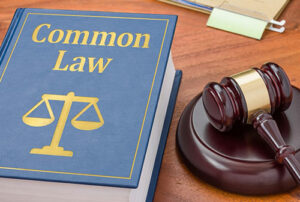
Racketeering is a complex charge that carries serious penalties and jail time for people who are convicted. If you have been charged with racketeering or RICO in Nevada, hiring a top criminal lawyer in Las Vegas is the best way to defend yourself.
Racketeering charges are brought against criminal enterprises that commit, attempt to commit, or conspire to commit two or more serious crimes, such as:
There are more than twenty crimes that can support a racketeering charge, and most of those crimes are felonies by themselves.
Committing the crimes is not enough to convict a person of racketeering. The key is that the crimes committed must be related to one another to further the criminal enterprise, and they must have been committed within five years of one another under Nevada law.
Furthering a criminal enterprise means:
Nick Wooldridge has a long track record of representing clients accused of serious federal and state crimes in Nevada.
RICO is the name of the federal racketeering statute. It stands for the Racketeer Influenced and Corrupt Organizations Act. There is a special type of criminal conspiracy crime for people who conspire to commit RICO or racketeering.
Federal law enforcement uses RICO to charge individuals who commit multiple crimes across state lines over a ten year period to further a criminal enterprise.
All racketeering charges are serious and complicated crimes that are likely to be investigated over a long period of time by one or more law enforcement agencies.
There may be a paper trail for white collar crimes committed in furtherance of a criminal enterprise. Witnesses may come forward to testify against the participants. Finally, one participant in racketeering may testify against his associates in exchange for a lesser sentence.
Any participant in a criminal enterprise can be prosecuted, even if charges have not been brought against any other participant.
When I initially met with Mr. Wooldridge, he took the opportunity to sit and go over my problem with me. He described details in my case which he found disturbing and explained why he I should have him on my side.
Nevada law punishes racketeering as a Category B felony, which can mean prison time of up to 20 years. A Category B felony may also require the defendant to pay fines of up to $5,000.
In federal cases, the penalties can be much harsher and will likely depend on the crimes committed in furtherance of the criminal enterprise.
Racketeering and RICO charges are complex and usually involve a lot of evidence collected over a long time frame by many law enforcement agencies.
This means that the police and government had many chances to make mistakes in gathering evidence against you. Illegally seized evidence can be thrown out of the case by an experienced criminal defense lawyer.
Another defense to racketeering is evidence showing that the underlying crimes were not interrelated or committed to advance a single purpose. This is the heart of a racketeering case, and if it can be disproven, you should be acquitted of the charges.
If you have been arrested for racketeering in Nevada, you should turn over your defense to a qualified Las Vegas defense lawyer as soon as possible. You will probably also face other criminal charges, such as criminal conspiracy or mail and wire fraud.
LV Criminal Defense – a team of experienced Nevada criminal lawyers – will determine what evidence the police have and whether a plea bargain is possible (and a good idea).